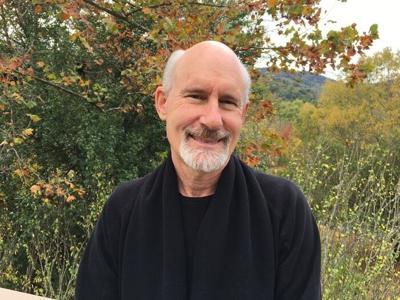After presenting my views on freethinking at a gathering in South Carolina, one petite elderly lady approached me with an unhappy look on her face: “Do you believe in the afterlife?” she asked.
“No, I don’t,” I replied. She turned away with a scowl: “I’ll see you at the Judgment.” The next day, I received an email from a reader who had sent me a preachy email once before. She began with the conversation-stopping line: “This will be my last communication with you.” The reader couldn’t resist preaching once more, and wasn’t going to allow a response (after all, preaching doesn’t usually allow for listening). Quoting the Bible “at me” again, she assured me I was a sinner deserving of punishment from her vengeful God. I responded as I did to her former email: “I don’t feel the need to seriously consider your judgmental faith.”
These kinds of responses don’t bother me much and I don’t always reply, but I think it’s good to push back a little, clearly, firmly yet respectfully. Besides, preaching at a former preacher doesn’t accomplish anything.
In a serious conversation over lunch, several older people confessed they often worried they were in danger of going to hell. They believed in God, but weren’t sure it was enough, if they believed or practiced faith as they should. When they looked at me, I nodded with sadness and sympathy, but responded with irritation: “There is no hell.” It felt important to state my view clearly, confronting head-on that awful belief, while comforting people who have lived with a lingering, festering fear since they were children. How many of us carry the uncertainty we’ll ever be good enough, believe enough, to escape the wrath of an angry God? These traumatizing theologies must be firmly challenged.
A highflying drone’s-eye view of the biblical story can leave an impression the Creator is never really happy with what He has created. Humanity has been a disappointment since the beginning. Made to fail, we failed. Created as fragile and flawed creatures, we make bad decisions and poor choices, so a plan of salvation became necessary. Without the fear of eternal consequences, a severe response to mistakes, what need is there for devotion, for faith? Without fear, can there be faith, at least a motive to believe?
What is the motivation for people telling me I deserve judgment? Maybe it’s somehow “loving”? But doesn’t it come back to fear once again, a fear that if they don’t tell me their “good news” of judgment I will be judged condemned? I suspect it’s more; I think a person worries that someone like me, who has believed and now does not, might make them question their own belief and that’s too terrible to contemplate. They fear their own loss of faith, or at least the danger of doubt. We get the word “dubious” from the word doubt, which in Latin means “hesitate.” One should never hesitate in their faith or God may be dubious, thinking: “This person doesn’t believe and obey, they don’t love me enough—I’m so sad I have to make them suffer forever and ever.” As I see it, that’s God’s issue, not the person who simply wants to be faithful even through their hesitant failure. (In my most heretical moments, I wonder if the Divine Judge could use some serious therapy).
Freethinkers from Thomas Paine and Robert Ingersoll to contemporary humanists (and some progressive Christians) have engaged the battle against this destructive theology. The mental anguish, the pain and self-flagellation caused by the belief there is an angry, judgmental Parent above, ready at any moment to inflict suffering, preparing to punish you in eternal fire, is torment enough. That any church or preacher continues to propagate this terrible theology of torture is unbelievable. Yet, from another angle, it almost makes sense. After all, can a faith that has no threat of punishment survive?
Thinking back to the reader’s comment, that her email was her “last communication” with me, I have to conclude that there is fear involved, as well as anger that I dare to speak out, to question, to cause her to question (?). The strange thing is, these people don’t know me at all. They may have read something, or heard me speak once, but what is it that most aggravates them? Yes, freethinkers (including Jesus) aggravate many people just by opening our mouths. I’m not comparing myself with Jesus, but I dare say that what I speak, teach and write expands on his message, which, in my opinion, had more to do with recognizing the goodness in people, showing lovingkindness, rather than judging them deserving of condemnation and damnation from a very “cross” deity intent on revenge.
Chris Highland was a Protestant minister and interfaith chaplain for many years before becoming a humanist celebrant and author of many books. He lives in Asheville, North Carolina. His website is www.chighland.com.
Are you minister who wants to contribute columns? Send them to news@blackbeltnewsnetwork.com.











(0) comments
Welcome to the discussion.
Log In
Keep it Clean. Please avoid obscene, vulgar, lewd, racist or sexually-oriented language.
PLEASE TURN OFF YOUR CAPS LOCK.
Don't Threaten. Threats of harming another person will not be tolerated.
Be Truthful. Don't knowingly lie about anyone or anything.
Be Nice. No racism, sexism or any sort of -ism that is degrading to another person.
Be Proactive. Use the 'Report' link on each comment to let us know of abusive posts.
Share with Us. We'd love to hear eyewitness accounts, the history behind an article.